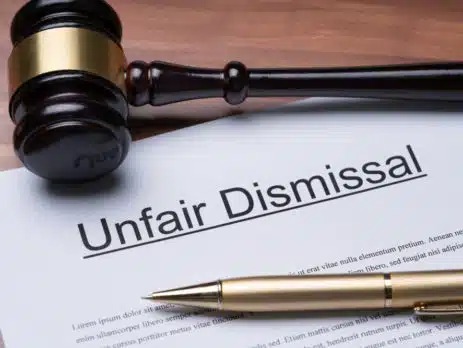UK: Severely fatigued lawyer unfairly sacked over absences
Chinedu Orogbu brought employment tribunal proceedings against Duncan Lewis Solicitors after he was dismissed over repeated absences from work.

A British solicitor sacked while suffering severe fatigue has won his claim for unfair dismissal against his former firm.
Chinedu Orogbu brought employment tribunal proceedings against Duncan Lewis Solicitors after he was dismissed over repeated absences from work. The East London tribunal found the claim, reported to be worth more than £200,000, was well founded after the firm failed to make reasonable adjustments and unfairly appeared to believe he was being dishonest.
Chinedu Orogbu was a full-time director in the firm’s housing department, based in the Dalston branch from February 2018.
His billing target was three times his salary, which equated to around four hours of chargeable time a day. Prior to 2020 he billed at least 85% of his target hours, but figures for 2020 showed that dropped to 57%.
A preliminary hearing in the case had already established that Orogbu was a disabled person due to suffering from extreme fatigue. This condition caused a lack of energy, difficulty reading documents, problems concentrating and sleep loss.
His symptoms were so bad by September 2019 that he reported having to ‘literally drag myself through the day’, and the fatigue worsened after the lockdown from March 2020 until his dismissal in November that year.
The tribunal accepted Orogbu’s evidence that he could ‘hardly function’ and had to lie down most of the day. It was admitted that he failed to work on 70 days between April and October 2020.
Orogbu had informed managing director Nina Joshi in May 2020 that he had been unwell. Later in the year he would discuss his health with the firm’s risk and compliance director but the offer of workplace adjustments or any other support was not followed up.
Joshi described Orogbu’s performance as ‘wholly unacceptable’ and that his unreported absences from work were ‘gross misconduct’. The tribunal heard that Joshi discussed resignation, indicating that any reapplication would be viewed favourably, but it ruled this was an attempt to flatter Orogbu to avoid a formal process.
Orogbu admitted not reporting his absences from work despite still working as a solicitor for vulnerable clients during this period. He said he was too ill to report his absence and recalled being in a ‘mental health crisis’.
The tribunal found that the firm made assumptions about Orogbu’s ability to comply with reporting procedures which were not based on medical evidence. He was unable to report his absence during a period when he could not carry out basic tasks and was ‘not thinking rationally’.
The tribunal added: ‘We accept his evidence that being contacted by vulnerable clients who needed his assistance brought him a level of focused lucidity, but that did not transfer to all elements of his life, including the need to notify the respondent of his absence.’
Orogbu had requested a disciplinary meeting with management be postponed but the firm refused, saying he had not produced any medical evidence to justify a delay. The meeting went ahead without him and the firm dismissed him three days later citing unauthorised absence.
The firm’s performance director Sangita Shah submitted in oral evidence that there had been a ‘tipping point’ of five days which constituted gross incompetence. The tribunal said this point was ‘self-serving’ and there was nothing in any policy about a tipping point.
It was concluded there were no reasonable grounds for the firm to believe Orogbu’s illness-related absence was misconduct, and Duncan Lewis made incorrect assumptions about his health. His subsequent appeal was ‘tainted’ by unfounded suspicions he was dishonest. It was also not considered reasonable to refuse the request for a postponement of the disciplinary meeting.
The firm was found to have failed to take into account the solicitor’s health reasons for his absence and did not consider or commission medical evidence to understand his condition.
A remedy hearing will follow.


